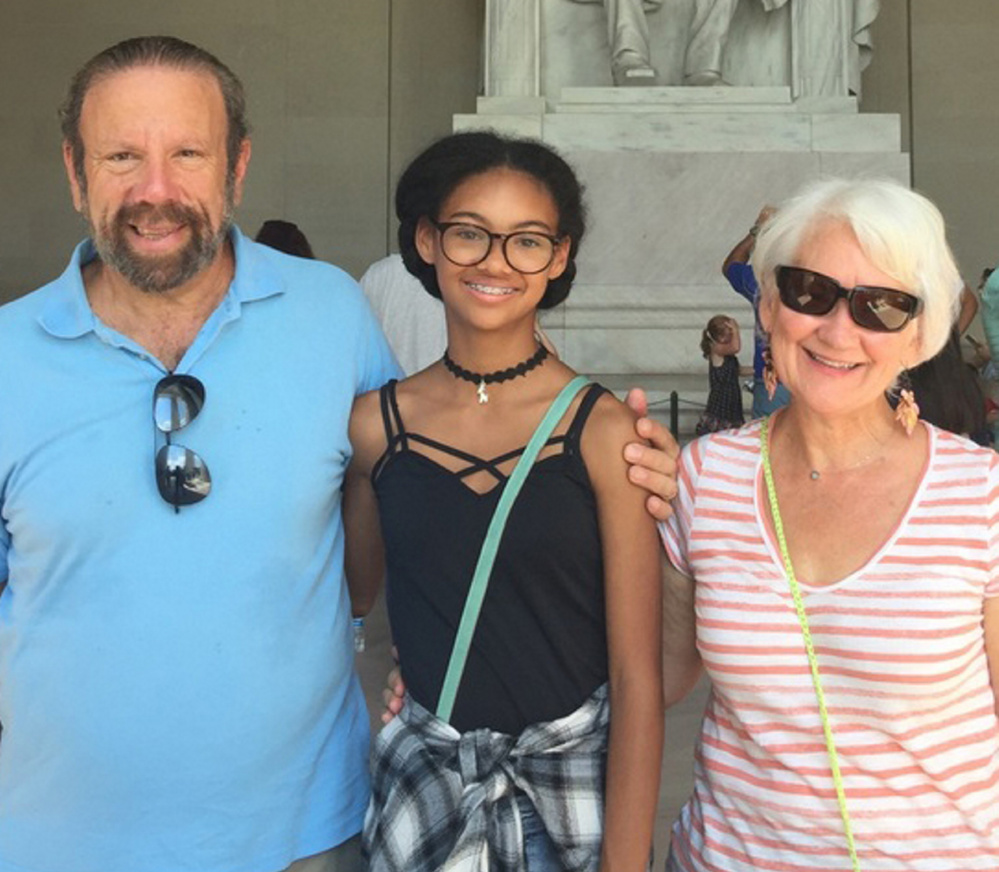When Arthur and Donna Lerman learned that a powerful storm was bearing down on Florida last week, they paid attention to the forecasts and stocked their home with everything they’d need to last weeks without power: water, food, emergency kits.
According to the early forecasts, Hurricane Irma was on a trajectory to make landfall somewhere between the Keys and Miami, which might have spared the Lermans’ home the worst damage. They first moved to Florida in 2007, after living in Augusta for many years, and now live in Venice, a city just south of Sarasota, about halfway up the state’s West Coast.
“The plan was to hunker down,” said Donna Lerman, 66, in a phone interview. But then “the spaghetti track started shifting (and) it started looking like we were going to be directly hit by a Category 3 hurricane, and it looked like the East Coast was going to be safer.”
Because of the changing path of the hurricane, the Lermans’ plans were upended twice over the weekend, as they first evacuated to Donna Lerman’s sister’s home in Fernandina Beach in the far northeastern corner of the state. Then, after making that long drive on Saturday, the couple again decided to evacuate early Sunday morning, when forecasts were predicting heavy wind and storm surges on the East Coast.
The Lermans finally found a place to stay in Gastonia, North Carolina, where their daughter lives. By Tuesday, they were returning to their neighborhood to assess the damage from Hurricane Irma, along with many of their fellow Floridians who had been dislocated by the storm.
Donna, who served on Augusta City Council until about 2006, and whose husband served in the Maine House of Representatives, said the damage in Venice might have been relatively minimal, according to neighbors who stuck around and provided updates via text message. Their house had electricity on Tuesday, apparently.
But they were concerned about the quality of the roads and whether they’d have enough gas to return. They bought two canisters of fuel for the ride home, after nearly running out of gas on the way out of the state and finding most stations to be closed.
“It’s not over,” Donna said, of their return journey.
It’s not over for many in Florida. The hurricane was Category 4 by the time it hit the Sunshine State, after leaving a trail of destruction on multiple Caribbean Islands, and the state has a long road to recovery.
Irma first hit land toward the western end of the low-lying islands known as the Keys, tearing roofs off houses, blowing boats out of the water, and felling trees and power lines, according to the Miami Herald. One of the greatest challenges now facing the state is restoring electricity, with as many as 15 million residents having lost it in the storm.
Another Augusta native, 36-year-old Erika Heffernan, now lives in Key West. But she evacuated late last week and spent the storm with family members who live in Gainesville, an inland city in the north of the state.
Heffernan’s drive to Gainesville “is normally a four-hour ride, at most,” she said by phone on Tuesday. But because of all the drivers evacuating late last week, “it took me 12.”
“Everyone from the entire West Coast was trying to get north at that point,” she continued. “I’ve been through four hurricanes; I’ve never seen people so, I guess, scared. The driving was very chaotic. People in rest stops were very panicked. Normally Floridans are like, ‘Yeah, we know hurricanes are coming.’ This was just so big.”
On Tuesday, Heffernan was helping her family clear wood and debris that had fallen in Gainesville.
She works for the Florida Keys Outreach Coalition, an organization that serves about 70 homeless people who are now staying in shelters in the Miami area. Because of the extensive damage on the Keys, Heffernan said, they might not be able to return for two or three weeks. To help with the recovery, Heffernan’s group now is trying to combine its efforts and collect donations with other nonprofit organizations in the Keys, she said.
Although the damage to the Lermans’ home in Venice was minimal, Donna Lerman said, she was still happy with their choice to evacuate. She also praised the sense of community that she’s observed among people at rest stops and gas stations amid the ongoing disaster.
When they stopped at a welcome center in Georgia over the weekend, she said, “the parking lot was filled with people, garbage cans were overflowing and it was clear that some people had spent the night in their vehicles.”
Still, “everyone was remarkably friendly, and supportive, like we were all in this together. It really brought out the best in people.”
Charles Eichacker — 621-5642
Twitter: @ceichacker
Send questions/comments to the editors.



